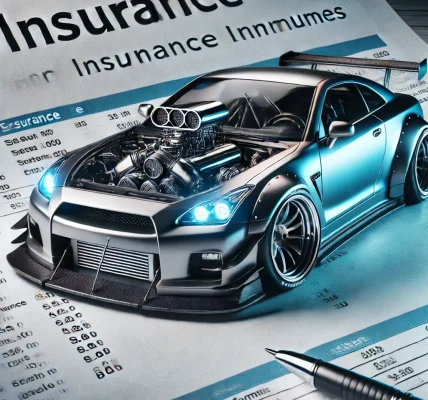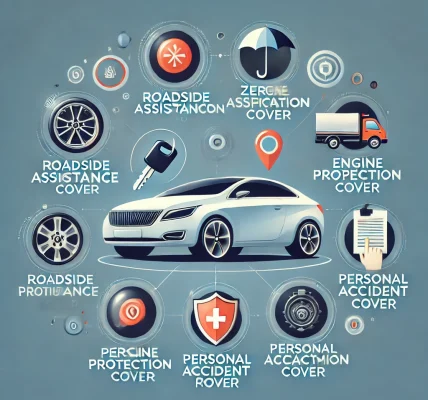Introduction
When purchasing car insurance, many factors influence the premium you pay. Among them, the age and model of your vehicle play a significant role. Insurance companies assess these aspects to determine risk levels, repair costs, and potential claims. Understanding how vehicle age and model affect insurance premiums can help you make informed decisions when buying or insuring a car.
How Vehicle Age Affects Car Insurance Premiums
1. New Cars vs. Older Cars
- New Cars: Generally, new cars come with higher insurance premiums. This is because they have a higher market value, expensive repair costs, and advanced technology that requires specialized maintenance.
- Older Cars: As a vehicle ages, its value depreciates. This typically results in lower insurance premiums since the replacement cost is lower in case of a total loss.
2. Depreciation and Insurance Coverage
- A new car loses approximately 20-30% of its value in the first year and continues to depreciate over time.
- Insurance companies adjust premiums accordingly, meaning that older vehicles generally cost less to insure than newer ones.
3. Collision and Comprehensive Coverage Considerations
- Many owners of older cars opt to drop collision and comprehensive coverage, especially when the car’s value is low.
- If an older car’s value is less than the deductible and the cost of repairs, maintaining full coverage may not be cost-effective.
How Vehicle Model Influences Insurance Costs
1. Luxury vs. Economy Cars
- Luxury Cars: High-end models from brands like Mercedes, BMW, or Tesla typically have higher premiums due to their high repair and replacement costs.
- Economy Cars: Models like Toyota Corolla or Honda Civic generally have lower premiums since they are more affordable to repair and replace.
2. Sports Cars vs. Family Sedans
- Sports Cars: Vehicles designed for speed and performance tend to attract higher insurance costs due to increased accident risks.
- Family Sedans: Practical vehicles, such as minivans and sedans, are seen as safer, reducing insurance costs.
3. Safety Ratings and Features
- Cars with advanced safety features (adaptive cruise control, lane assist, airbags, etc.) often qualify for insurance discounts.
- Vehicles with high safety ratings are less risky to insure compared to those with poor crash-test results.
4. Theft Rates and Insurance Impact
- Some car models are more frequently stolen, leading to higher comprehensive insurance costs. For instance, Honda Accords and Ford F-150s are among the most stolen cars in the U.S.
- Anti-theft devices and tracking systems can help lower premiums.
Additional Factors Influencing Insurance Premiums
1. Usage and Mileage
- High-mileage vehicles may have higher premiums since more time on the road increases accident risk.
- Occasional or low-mileage drivers may qualify for lower premiums.
2. Modifications and Customizations
- Aftermarket modifications (turbochargers, custom paint jobs, performance upgrades) can increase premiums.
- Insurers see modifications as risk enhancers, leading to costlier policies.
Tips to Lower Car Insurance Premiums
- Choose a Car with a High Safety Rating: Vehicles with strong safety records often have lower premiums.
- Consider an Older, Reliable Car: Instead of a brand-new model, a well-maintained used car can save money on insurance.
- Opt for Higher Deductibles: Increasing your deductible can lower your premium.
- Look for Discounts: Many insurers offer discounts for safe drivers, low mileage, or bundling policies.
- Install Security Features: Anti-theft systems and tracking devices can help reduce insurance costs.
Conclusion
The age and model of your car significantly impact your insurance premiums. Newer, high-end, or high-performance vehicles tend to have higher premiums, while older, safer, and economy models generally come with lower costs. Understanding these factors can help you choose the right insurance policy that balances coverage and affordability. When purchasing a vehicle or renewing your insurance, consider the long-term financial impact to make the best decision for your needs.



